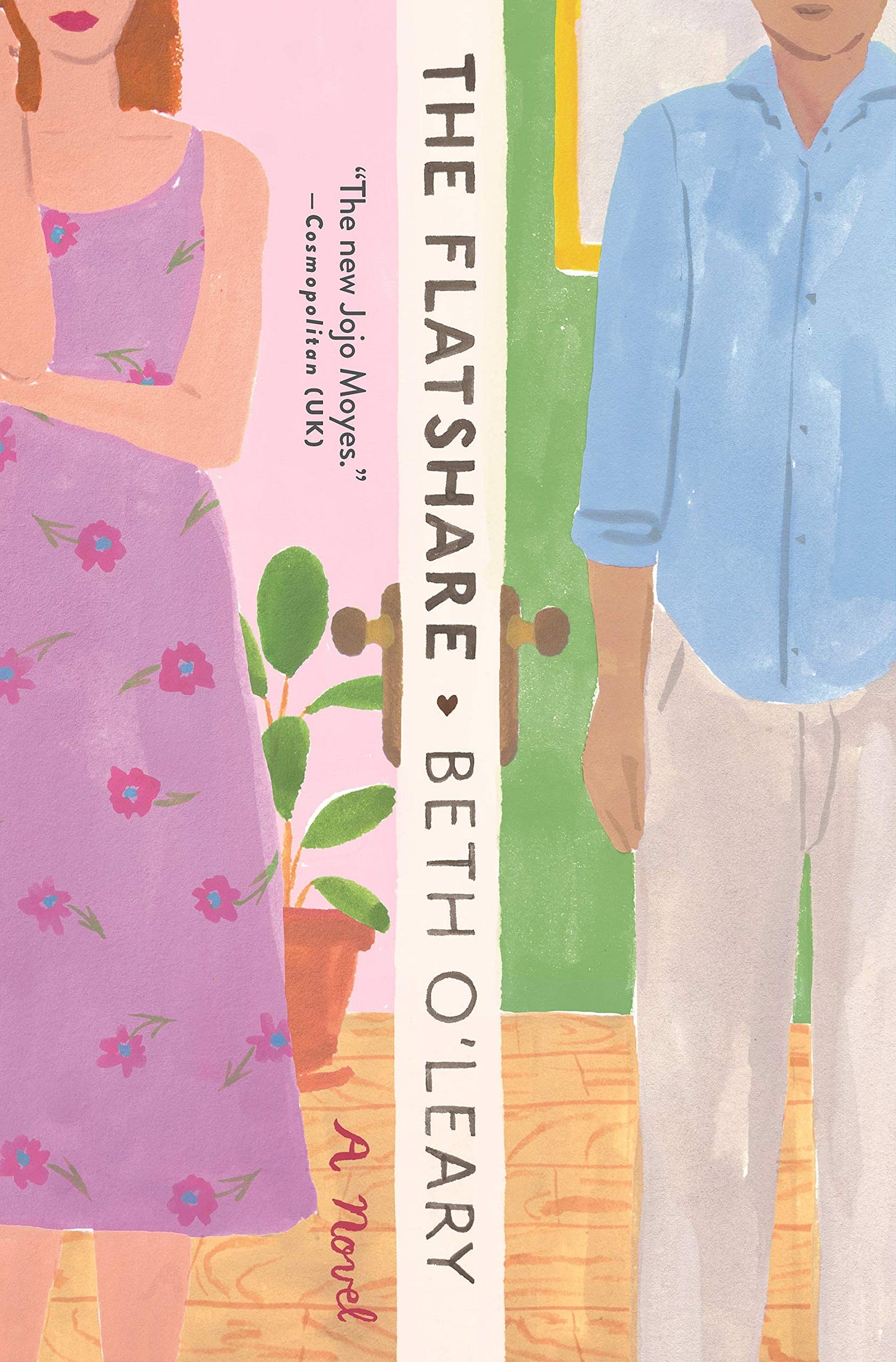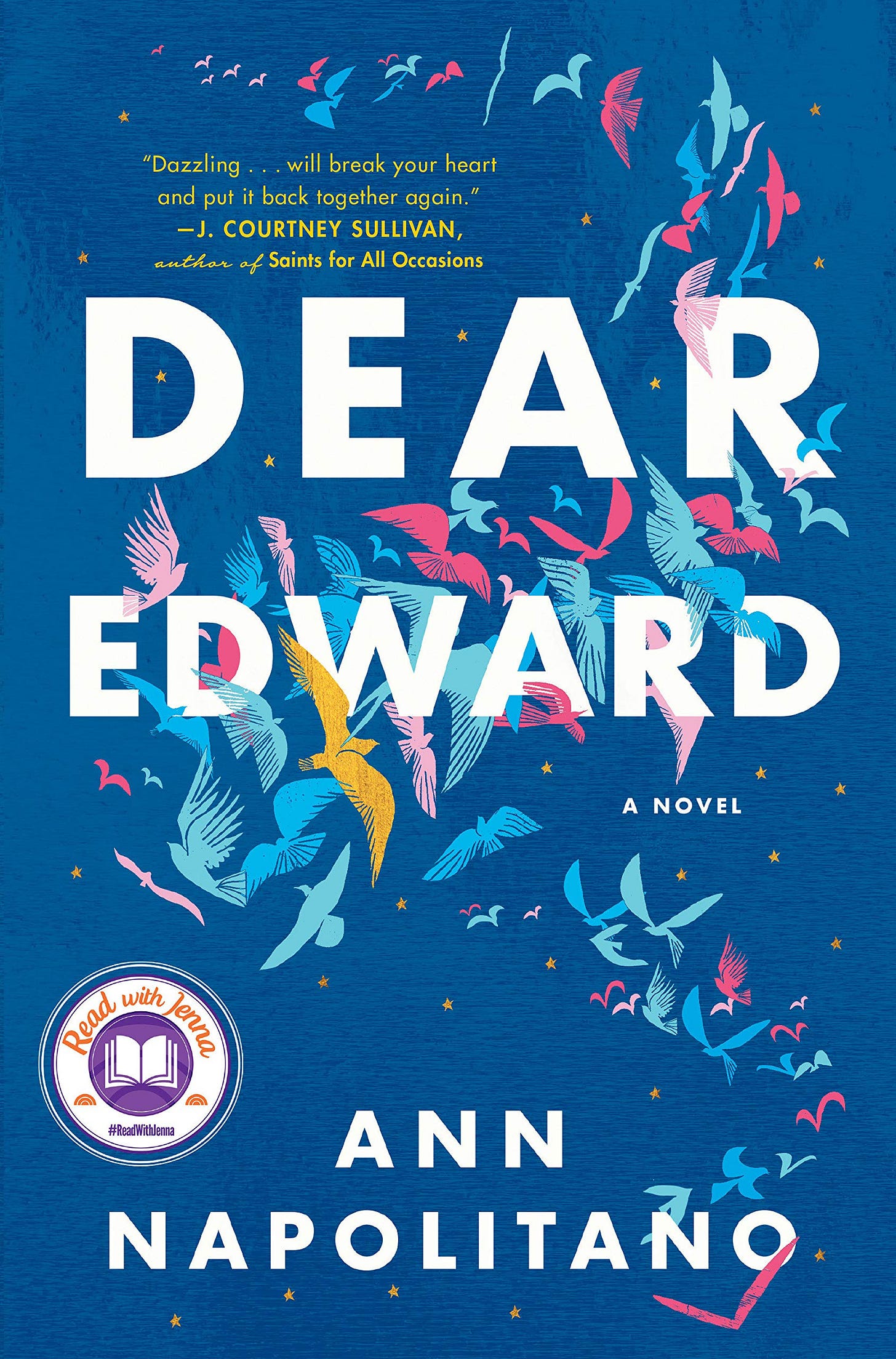Hi friends,
Well, that was quite the start to the year.
For those of you who don’t know, I live eight blocks from the Capitol, so last week’s insurrection hit close to home, literally. I’m physically fine, but like many Americans, I’m angry and sad. This week’s recommendations reflect the way I’ve been thinking and processing the events.
I want to quickly say thank you to everyone who reached out to check on me last Wednesday — I appreciate knowing how much you care.
Here’s to hoping 2021 gets better from here.
So, what to read if …
You Need a Comfort Read
The Flatshare by Beth O’Leary
On Wednesday night, to drown out the sound of helicopters and sirens, I turned on the audio version of The Flatshare. Since this book came out in 2019, I’ve read it at least twice and turned to the audiobook many nights to help me fall asleep. It’s the literary equivalent of a cup of tea.
In her debut, Beth O’Leary tells the story of Tiffy and Leon, strangers who agree not to share not only an apartment but a bed as well. Leon works nights and sleeps during the day, while Tiffy works a more conventional schedule and has free reign over the apartment in the evenings. The pair develops a friendship by writing post-it notes to each other that eventually evolves into a real-life relationship. It alternates between their two perspectives, allowing us to peer into their thoughts and emotions.
It’s a delight to read (and re-read) and has been a source of comfort to me since it came out. The audiobook, which features separate actors playing the parts of Tiffy and Leon, is a particular treat.
You’re Processing the Riot at the Capitol
What Were We Thinking: A Brief Intellectual History of the Trump Era by Carlos Lozada
Last week, I spent a lot of time thinking about What Were We Thinking, written by Carlos Lozada, The Washington Post’s non-fiction book critic. Lozada read more than 150 “Trump books,” volumes about the president, his campaign and his administration. The result of his efforts is ten essays, each exploring a different theme common in the political conversation over the past five years. In his article on the heartland and white working-class voters, for example, Lozada draws on J.D. Vance’s Hillbilly Elegy and Heartland by Sarah Smarsh. The chapter on immigration discusses a memoir by a border agent raised by a Mexican immigrant and multiple histories of immigration in the United States. The essays are short and super readable.
While Lozada explains in the book’s introduction that his “concern is not explaining how we got here, but how we thought here,” I found myself thinking that the two can’t be separated.
The collection’s final essay, “In Plain View,” feels particularly relevant this week. In it, Lozada documents the ways the Trump administration has undermined democratic norms.
He writes, “Yes ‘norms’ have become dutiful shorthand when explaining Trump’s transgressions, but they deserve that distinction. By so easily violating multiple standards of presidential behavior — by lying incessantly, even about matters of settled fact; by refusing to release his personal financial information; by disclosing classified intelligence to foreign officials on a whim; by accusing political rivals of unspecified crimes; by dismissing or beating inspectors general and other officials charged with oversight of federal agencies — Trump has shown that those standards are matters of habit and mutual accommodation, not of law or obligation.”
You Want to Feel Hopeful
Dear Edward by Ann Napolitano
Dear Edward, in the words of writer J. Courtney Sullivan, is the kind of book that “will break your heart and put it back together again.”
It’s about Edward Adler, a 12-year-old who boards a plane from Newark to Los Angeles with his parents and older brother. As they fly over Colorado, the plane crashes. Edward is the sole survivor.
It’s a devastating premise, but what follows is a beautiful story of courage and resilience. Readers follow Edward as he moves in with his aunt and uncle, befriends their neighbor and attempts to rebuild following the accident. I shouldn’t have felt hopeful after finishing a book about a deadly plane crash, and yet I did. That’s the best endorsement I can give Dear Edward.
If you enjoyed these recommendations, consider subscribing and you’ll find them each week in your inbox.





